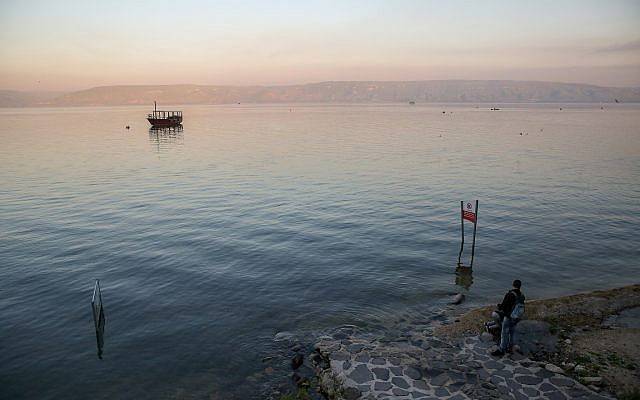After years of drought, the Sea of Galilee rose an additional 11 centimeters in May.
By United With Israel Staff
Following six years of drought, Israel’s Water Authority announced that the Kinneret (Sea of Galilee) rose an additional 11 centimeters in May. This is great news, as the sea is Israel’s largest source of natural water and has receded significantly during the past few years.
Recently, the Kinneret’s water level came dangerously close to reaching the “black line,” which is the demarcation point below which water cannot be pumped without damaging infrastructure and the water supply. Thankfully, the Kinneret rose nearly 3.5 meters since Israel’s winter rainy season began. Nonetheless, the sea remains below its optimal level by about 2.4 meters.
Before this winter’s blessed rains, Israel’s lakes, riverbeds and aquifers were at an unprecedented 100-year-low.
Had the Kinneret reached the black line, irreversible ecological problems might have occurred. These would have included an increase in water salinity and overgrowth of algae that can permanently damage the quality of the water, flora and fauna.
Had the drought continued through 2019, the Water Authority would have been forced to impose limits on water consumption in the country.
Recognizing the urgent need to compensate for a lack of fresh water, Israel has constructed five massive desalination plants on the Mediterranean coast and is working on two more. These provide about 70 percent of the country’s drinking water.
Israel also recycles nearly 86 percent of its waste water for agricultural use.
Unfortunately, the Dead Sea, which is fed by the Kinneret, continues to shrink, sometimes causing sudden sink holes on the roads in the area.
Israel’s citizens have long been trained to preserve water. Israelis, for example, shut water off while lathering in the shower or brushing their teeth. Hand-washing dishes involves first soaping all of them with the water off and then rinsing one after the other.
Additionally, special prayers for rain are part of Jewish liturgy. With the land relying so heavily on God’s blessings, the prayer for rain is said several times a day, from the last day of the autumn holiday of Sukkot through the beginning of Passover in the spring.
